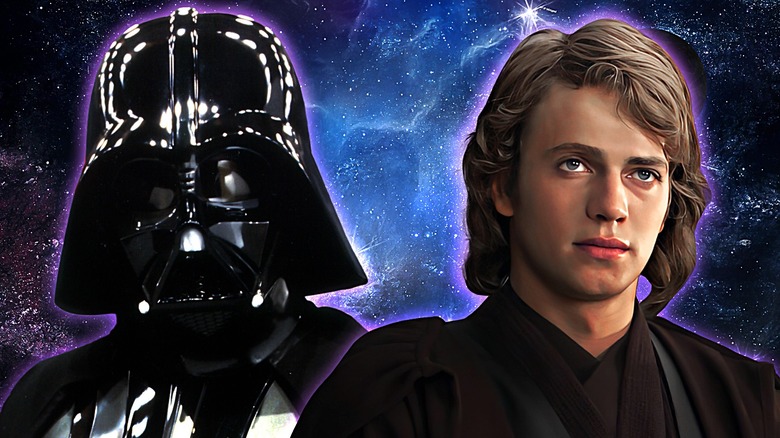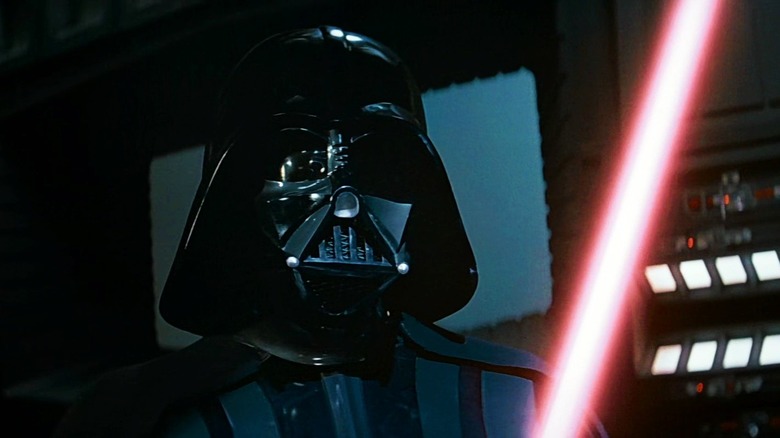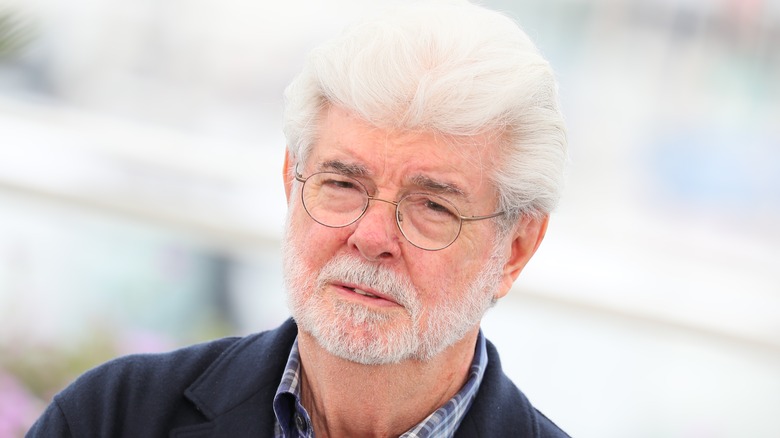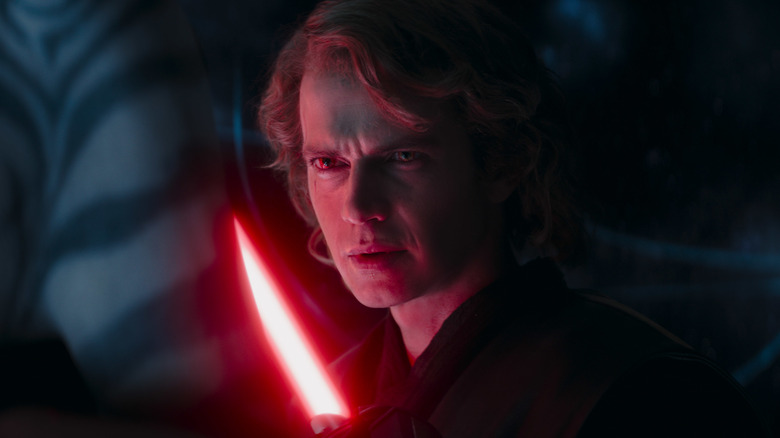Star Wars: Darth Vader Fans Are Still Divided By One Huge Debate
Redemption can be a tricky thing to pull off as a writer. For the arc to really work, the character in question typically goes pretty far down the path of darkness. That moment when they finally see the light and do the heroic deed is satisfying to watch, but it can also lead to more complicated questions. Did the redemptive act trump the crime? And what do we do with the characters now?
There is perhaps no more famous example of the cinematic redemption arc than the story of Darth Vader, who goes from Jedi hero to murderous Sith Lord throughout the Star Wars saga before finally saving the galaxy in his final moments when he turns on Emperor Palpatine. Anakin Skywalker turns back to the light, but does he actually redeem himself? It's a question that Star Wars fans have debated for decades, and we're no closer to reaching a consensus.
The fact is, Darth Vader is directly responsible for countless killings and indirectly responsible for far more. The pit of rage, hatred, and self-loathing he falls into after his loss on Mustafar consumes him and kicks off two decades of violence across the galaxy. While he turns away from the dark side before dying, saving his son and stopping Palpatine in the process, it's hard to argue that this single act actually wipes clean the years of brutal acts he committed.
How was Vader viewed after the fall of the Empire?
One thing to remember regarding Darth Vader's would-be redemption is that most of the galaxy never knew that he was actually Anakin Skywalker, a famous hero from the Clone Wars. The fact of his parentage to Luke and Leia is also a well-kept secret for many years. In the canon novel "Star Wars: Bloodline" by Claudia Gray, these truths come out into the open, used as a political weapon against Leia in the burgeoning New Republic. The public learns the full nature of Vader and his children, and this information severely hinders Leia's political career.
This proves that most of the galaxy doesn't really care about what Vader did at the end of his life. The facts of his Imperial campaign are more important, and he's hardly redeemed in the people's eyes. Leia struggles to deal with the truth that Vader was her father, as her only memories of him include him capturing her, killing her crew, torturing her, and destroying Alderaan. Unlike Luke, she doesn't get to look into Anakin's eyes as the life drains from them. She doesn't get to see her father do one good deed before the end.
A different version of events plays out in "Star Wars Infinities: Return of the Jedi," a non-canon, alternate universe comic published between 2003 and 2004. In that story, Vader survives the ending of "Return of the Jedi" and recreates himself as an agent of the light, emerging in a striking all-white version of his iconic armor. While a fun what-if, it doesn't really make sense given all the evil he did for the Empire.
George Lucas had interesting thoughts on Darth Vader's redemption
On the matter of Darth Vader's redemption, there is perhaps no one better to ask than George Lucas. In J.W. Rinzler's 2005 book "The Making of Star Wars Revenge of the Sith," the Star Wars creator shared his perspective on what actually happens to Anakin in those final "Return of the Jedi" moments.
"It really has to do with learning," Lucas said. "Anakin can't be redeemed for all the pain and suffering he's caused. He doesn't right the wrongs, but he stops the horror." He added that while Vader isn't really redeemed by what he does, he does fulfill the prophecy. "Anakin was the Chosen One, and he does bring balance to the Force. He takes the ounce of good still left in him and destroys the Emperor out of compassion for his son."
Lucas' opinion on the matter is essentially canon, but even if it wasn't, this explanation makes sense. Redemption after so many years of violence and brutality isn't really an option for Vader, no matter how much good he does by saving Luke. It's also true that Anakin really only does what he does to protect his son, not to save the whole galaxy. Is he happy just before he dies that the Empire will fall? Yes, but that isn't the main motivation for his turn. However, that simpler reading of Vader has been complicated a bit by other Star Wars stories.
Anakin Skywalker's current Star Wars storyline complicates his legacy
Back when "Return of the Jedi" was the end of the mainline Star Wars story (sorry Expanded Universe), it was much easier to grapple with how Anakin Skywalker's story concludes. However, in the years since Disney acquired Lucasfilm and the Star Wars license, the character's legacy has gotten increasingly more complicated. He doesn't appear in the sequel trilogy except as one of the Jedi voices who speak to Rey at the end of "The Rise of Skywalker." He never steps in as a Force ghost to correct his grandson, Kylo Ren, and tell him that actually, maybe you shouldn't be worshiping that burnt Darth Vader helmet after all.
For years, that didn't seem weird. But then "Ahsoka" Season 1 came out, bringing with it a deluge of Anakin fan service. It's exciting to see him back and interacting with his former Padawan, both in the World Between Worlds and as a Force ghost watching over her on Peridea. Still, it's a bit strange that he'd get involved with her and not have anything to do with the sequel trilogy. Some of this can be explained away by the ambiguous nature of the World Between Worlds (Is it really him? Or is it Ahsoka's imagination?), but no matter how much fun it is to see Hayden Christensen in action, these cameos have made Vader's redemptive legacy more complicated.
To be fair, though, that all really started in "Return of the Jedi." Anakin appearing to Luke as a Force ghost at all confirms that he became one with the Force in the end — something that suggests a cosmic redemption if not a moral one. Even under Lucas, the question of Anakin's redemption was never fully clear.



